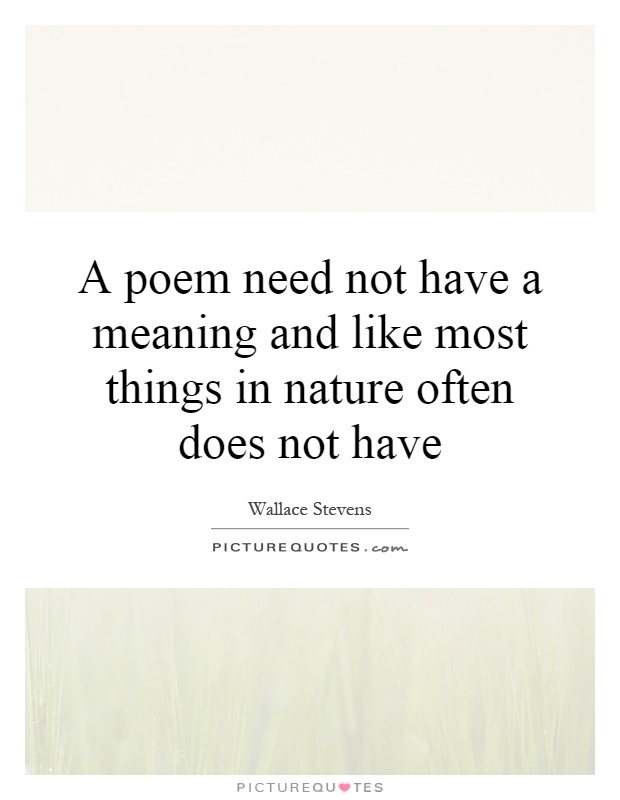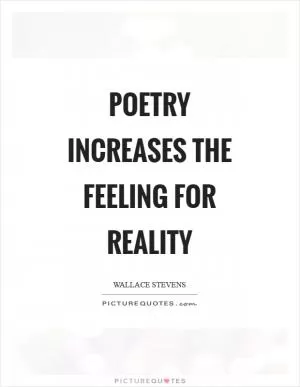A poem need not have a meaning and like most things in nature often does not have

A poem need not have a meaning and like most things in nature often does not have
Wallace Stevens, a renowned American poet, is often celebrated for his unique and complex approach to poetry. His work is known for its rich imagery, philosophical depth, and intricate wordplay. Stevens was a master of creating poems that were both beautiful and enigmatic, leaving readers to ponder their meaning long after the words had been read.One of the most intriguing aspects of Stevens' poetry is his belief that a poem need not have a specific meaning. In his essay "The Necessary Angel," Stevens famously wrote, "A poem need not have a meaning and like most things in nature often does not have." This statement reflects Stevens' view that poetry is not meant to be a puzzle to be solved, but rather an experience to be savored.
Stevens believed that poetry should be appreciated for its aesthetic qualities, rather than its intellectual content. He saw poetry as a form of art that could evoke emotions and sensations in the reader, much like a painting or a piece of music. For Stevens, the beauty of a poem lay in its language, its imagery, and its rhythm, rather than in any specific message or moral lesson.
Stevens' own poetry reflects this belief in the power of language and imagery. His poems are filled with vivid descriptions of the natural world, as well as intricate wordplay and complex metaphors. In works like "The Snow Man" and "Thirteen Ways of Looking at a Blackbird," Stevens explores the mysteries of existence and the limits of human perception, using language to create a sense of wonder and awe.












 Friendship Quotes
Friendship Quotes Love Quotes
Love Quotes Life Quotes
Life Quotes Funny Quotes
Funny Quotes Motivational Quotes
Motivational Quotes Inspirational Quotes
Inspirational Quotes